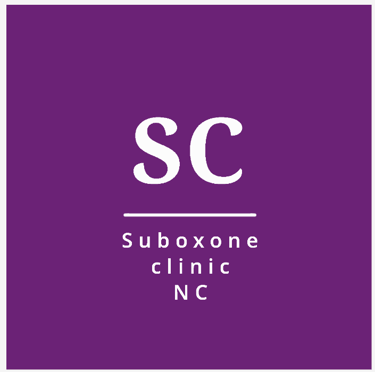Introduction
The opioid crisis has had a profound impact on individuals and communities across the globe. Addressing this crisis requires a multi-faceted approach, combining medical intervention, counseling, and support systems to help those struggling with addiction. One of the most effective treatments for opioid addiction is the use of Suboxone, a medication that combines buprenorphine and naloxone to reduce withdrawal symptoms and cravings. Buprenorphine clinics, often searched as "buprenorphine clinics near me," play a critical role in providing access to this life-saving treatment. In this article, we will explore the importance of buprenorphine clinics, the benefits of Suboxone treatment, and how to find a clinic near you.
Understanding Opioid Addiction
Opioid addiction is a chronic disease characterized by an overwhelming desire to use opioids despite harmful consequences. Opioids, including prescription painkillers like oxycodone and hydrocodone, as well as illicit drugs like heroin, bind to opioid receptors in the brain, producing pain relief and euphoria. Over time, repeated use can alter brain chemistry, leading to physical dependence and addiction.
The Impact of Opioid Addiction
The consequences of opioid addiction are devastating. It can lead to severe health problems, including overdose and death. According to the Centers for Disease Control and Prevention (CDC), more than 70% of the 70,630 drug overdose deaths in the United States in 2019 involved an opioid. Beyond the individual impact, opioid addiction affects families, workplaces, and communities, contributing to social and economic burdens.
The Need for Effective Treatment
Effective treatment for opioid addiction is crucial to reversing these trends. Comprehensive treatment plans typically include medications, counseling, behavioral therapies, and support from healthcare providers and loved ones. Medications like Suboxone are essential components of these plans, offering a scientifically-backed method to manage withdrawal symptoms and reduce cravings, making recovery more attainable.
What is Suboxone?
Suboxone is a prescription medication used to treat opioid addiction. It contains two active ingredients: buprenorphine and naloxone. Each of these components plays a crucial role in the effectiveness of the treatment.
Buprenorphine
Buprenorphine is a partial opioid agonist, which means it binds to the same receptors in the brain as opioids but produces a much weaker effect. This helps to reduce withdrawal symptoms and cravings without causing the intense high associated with opioid misuse. Buprenorphine has a ceiling effect, meaning that beyond a certain dose, its effects do not increase, reducing the risk of misuse and overdose.
Naloxone
Naloxone is an opioid antagonist that blocks the effects of opioids. It is included in Suboxone to deter misuse. If Suboxone is taken as prescribed, the naloxone component has no effect. However, if someone attempts to inject or snort the medication to achieve a high, naloxone will precipitate withdrawal symptoms, discouraging misuse.
Benefits of Suboxone Treatment
Suboxone offers several benefits for individuals struggling with opioid addiction:
Reduction in Cravings and Withdrawal Symptoms: Suboxone helps manage the physical symptoms of opioid withdrawal, making it easier for individuals to focus on their recovery.
Lower Risk of Misuse: The combination of buprenorphine and naloxone reduces the potential for misuse and overdose.
Improved Access to Treatment: Suboxone can be prescribed by certified healthcare providers, increasing access to treatment for those in need.
Support for Long-Term Recovery: When used as part of a comprehensive treatment plan, Suboxone can support long-term recovery and help individuals regain control of their lives.
The Role of Buprenorphine Clinics
Buprenorphine clinics are specialized healthcare facilities that provide access to buprenorphine-based treatments like Suboxone. These clinics are staffed by trained professionals who understand the complexities of opioid addiction and are equipped to provide comprehensive care.
Services Offered by Buprenorphine Clinics
Medical Assessment and Diagnosis: Clinics conduct thorough assessments to determine the severity of addiction and develop personalized treatment plans.
Medication-Assisted Treatment (MAT): Buprenorphine clinics prescribe and monitor the use of medications like Suboxone to manage withdrawal symptoms and cravings.
Counseling and Behavioral Therapies: In addition to medication, clinics offer counseling and behavioral therapies to address the psychological aspects of addiction.
Support Services: Many clinics provide support services, including case management, referral to community resources, and support groups to help individuals stay on track with their recovery.
Follow-Up Care: Ongoing monitoring and follow-up care are essential to ensure the effectiveness of the treatment and to make necessary adjustments.
Finding Buprenorphine Clinics Near Me
Finding a reputable buprenorphine clinic is a critical step in the journey to recovery. Here are some tips to help you locate a clinic near you:
Online Searches: Conducting an online search using keywords like "buprenorphine clinics near me" can provide a list of local clinics. Websites like SAMHSA’s Buprenorphine Treatment Practitioner Locator can also be useful.
Referrals from Healthcare Providers: Your primary care physician or a local hospital can provide referrals to buprenorphine clinics.
Local Health Departments: Contacting your local health department can help you find clinics and resources in your area.
Insurance Providers: Your insurance provider can give you a list of in-network buprenorphine clinics.
Community Resources: Community centers, support groups, and nonprofit organizations often have information on local addiction treatment resources.
Benefits of Local Buprenorphine Clinics
Choosing a local buprenorphine clinic has several advantages:
Accessibility: Proximity to home makes it easier to attend appointments regularly and adhere to treatment plans.
Community Support: Local clinics are often integrated into the community, providing access to additional resources and support networks.
Personalized Care: Smaller, community-based clinics can offer more personalized care and attention.
Family Involvement: Being close to home allows for family involvement in the treatment process, which can be crucial for recovery.
Challenges and Considerations
While buprenorphine clinics offer numerous benefits, there are also challenges and considerations to keep in mind:
Stigma
Despite the proven effectiveness of MAT, there is still stigma associated with using medications like Suboxone for addiction treatment. Education and awareness are essential to overcoming this barrier.
Accessibility
In some areas, access to buprenorphine clinics may be limited. Expanding the availability of certified providers and clinics is crucial to addressing this issue.
Cost
The cost of treatment can be a barrier for some individuals. However, many clinics accept insurance, and there are programs available to assist with the cost of medication and treatment.
Comprehensive Care
Medication alone is not enough for recovery. Comprehensive care, including counseling and support services, is essential for long-term success.
Conclusion
The opioid crisis continues to pose a significant challenge to public health, but there is hope. Buprenorphine clinics, offering treatments like Suboxone, are vital in helping individuals overcome addiction and regain control of their lives. By providing access to medication-assisted treatment, counseling, and support services, these clinics play a crucial role in the recovery process.
If you or someone you know is struggling with opioid addiction, seeking help from a buprenorphine clinic can be a life-changing decision. Using keywords like "buprenorphine clinics near me" in your search can help you find local resources and begin the journey to recovery. Remember, addiction is a chronic disease, but with the right treatment and support, recovery is possible.
Resources for Finding Help
If you are looking for a buprenorphine clinic near you, consider the following resources:
Substance Abuse and Mental Health Services Administration (SAMHSA): Use their Buprenorphine Treatment Practitioner Locator to find certified providers in your area.
National Helpline: SAMHSA’s National Helpline (1-800-662-HELP) offers confidential and free assistance.
Local Health Departments: Contact your local health department for information on addiction treatment services.
Insurance Providers: Check with your insurance provider for a list of in-network buprenorphine clinics.
Community Resources: Reach out to community centers, support groups, and nonprofit organizations for local resources.
By taking the first step to seek help, you are on your way to a healthier, addiction-free life. Buprenorphine clinics and comprehensive treatment plans can provide the support you need to achieve long-term recovery and well-being.


